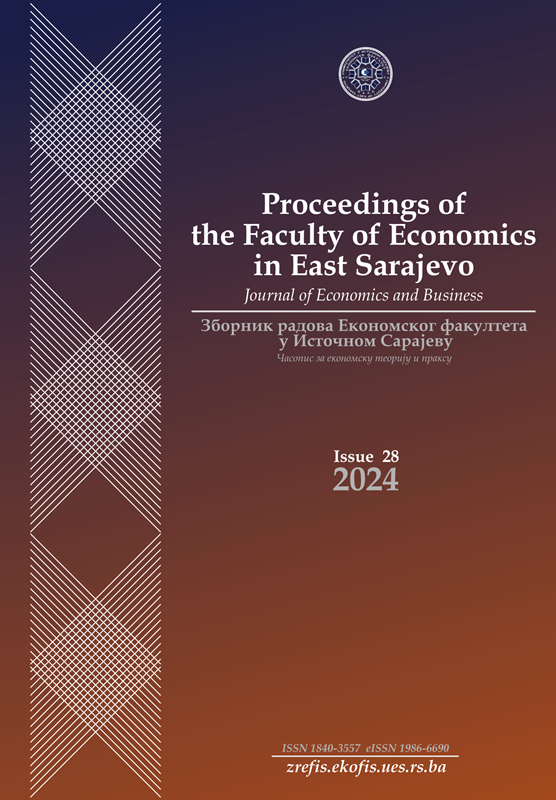SOCIO-DEMOGRAPHIC CHARACTERISTICS AS A FACTOR OF STUDENT LOYALTY: A MARKETING APPROACH
DOI:
https://doi.org/10.7251/ZREFIS2428039MAbstract
This paper focuses on student loyalty in higher education. In higher education, loyalty primarily means building a stronger connection with students, shaping a positive perception, and spreading positive publicity about the institution. Loyalty in higher education also involves retaining students until the completion of their studies and maintaining the relationship through enrollment in subsequent study cycles or alumni organizations. Building relationships with students and adopting a student-oriented approach will strengthen the bond with them and provide the foundation for building their loyalty. This paper analyzes the relationship between socio-demographic characteristics (gender and socio-economic status) and status characteristics of students (years of study, whether they pay for their studies or not, whether they are domestic or foreign students) with dimensions of student loyalty (satisfaction with the service, intention to stay at the institution, and attachment). The research has shown that gender and socio-economic status of students do not have a significant impact on any dimension of loyalty. On the other hand, the analysis results indicate that factors which are related to student status significantly influence all dimensions of student loyalty to the institution. The research results in this paper imply that marketing approaches in higher education can enhance relationships with students, their loyalty, and assist the management of these institutions in making decisions that will impact student retention at the educational institution.

